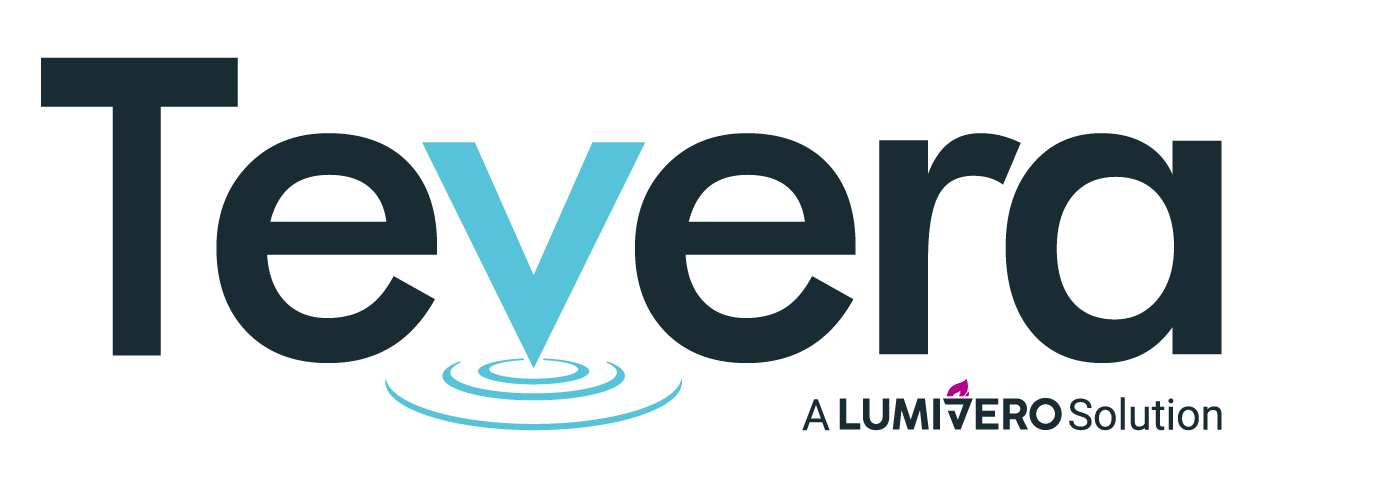Learn How Tevera Streamlines and Simplifies the Process
![APA Accreditations_February[16] photo of a student](https://tevera.com/wp-content/uploads/2024/03/APA-Accreditations_February16-1024x538.png)
A training program or academic institution with APA accreditation stands out to many as meeting the highest caliber standards for an education in psychology. But achieving and maintaining accreditations like this can be complex. This article will take a look at what APA accreditation is, why it matters, key considerations for meeting and maintaining the standard, and how Tevera can help to streamline and simplify the process.
APA Accreditation and Why It Matters
While they’re not commercial organizations, colleges and universities still exist in a highly competitive environment where they must continue to attract students, qualified faculty, positive awareness and perception, donations, and other funding. Accreditation is a key part of remaining competitive. Because they ensure the highest quality educational standards across various fields, they lend recognition and legitimacy to institutions and help to attract top students and faculty.
One major example is APA accreditation, overseen by the American Psychological Association (APA.) It specifically focuses on ensuring that education, professional development, and training programs meet established standards in the field of psychology. APA accreditation directly benefits students’ educational experience by guaranteeing a relevant, quality psychology curriculum. It can also enhance the value of their degree, opening up career opportunities and advancement in the industry.
Key Considerations for Meeting and Maintaining APA Accreditation Standards
To meet and maintain APA accreditation, schools must commit to meeting the APA’s standards and guidelines for their psychology program on a constant basis. As a first step, institutions should make sure they’re familiar with the existing APA standards and then stay on top of any changes or updates, which take place regularly. Below are examples of other critical areas to consider for ongoing compliance:
- Review the Program End-to-End
A key initial (and rolling) part of APA accreditation compliance is conducting a thorough self-study of your entire psychology program. You’ll need to assess all aspects, including strengths and weaknesses, of the program from the curriculum and faculty qualifications to student services and program funding.
- Collect and Maintain Data
You’ll want to be able to demonstrate compliance at any given time. So, be sure to gather, store, and maintain all program documentation. This includes things like faculty qualifications, student demographics, faculty qualifications, program evaluations, and assessment measurements.
- Show Continuous Improvement
Be sure you can show that you are regularly assessing your psychology program’s effectiveness and making changes based on those assessments. This shows a necessary dedication to continuous improvement for the program.
- Assessment of Student Learning
Are your students achieving the psychology program’s educational objectives? To be able to present this information to the APA, you’ll want to put a system in place to consistently evaluate and assess students’ learning outcomes.
- Regular Reporting to APA
The APA requires proof of certain information such as the psychology program’s structure and curriculum, faculty qualifications, student admissions criteria, and practicum and internship training details. Make sure you can access and submit this information in a timely manner.
How Tevera Can Help to Streamline the APA Accreditation Process
The process of obtaining and upholding APA accreditation can seem incredibly daunting to educational institutions. Tevera is an education management platform that simplifies the APA accreditation process by helping schools with organization, communication, and data management throughout each stage of the accreditation journey.
1. Documentation Management: With Tevera’s centralized platform for managing accreditation documentation, institutions can store, organize, and easily access all relevant materials, ensuring that the necessary evidence for meeting APA standards is readily available.
2. Collaboration in Real-Time: Tevera provides communication tools that enable seamless interaction among all accreditation stakeholders including faculty, administrators, and team members so they can efficiently convey and discuss information and updates.
3. Tailored Templates and Reports: Tevera offers convenient, customizable templates that align with APA time tracking requirements so students can easily stay on track toward meeting licensure requirements. Tevera also simplifies report generation, saving time and ensuring APA compliance.
4. Competency-Based Assessment: Tevera supports APA programs with any competency-based assessment needs by providing a structure for aligning assessment rubrics to KPIs and standards, for comprehensive insight into student success throughout their time in your program.
5. Data Collection and Analysis: Tevera automates the data collection processes related to accreditation automation which saves time and reduces the risk of errors when submitting data – leading to a smoother, faster accreditation process.
6. Progress and Compliance Visibility: Want to know where you stand with APA accreditation at any given time? With Tevera, you can easily view and track your institution’s progress and status. You can also see areas that need attention so you can address those gaps right away.
7. Continuous Improvement Support: Tevera facilitates ongoing assessment and feedback loops – helping institutions not only meet current accreditation requirements but stay proactive in addressing evolving standards.
Want to learn more about how Tevera can help to manage your APA or other program accreditation process? Reach out to us today and request a free trial.
SOLUTIONS
RELATED POSTS
PRODUCT OVERVIEW
See how Tevera can elevate your program.
Learn How Tevera Streamlines and Simplifies the Process
![APA Accreditations_February[16] photo of a student](https://tevera.com/wp-content/uploads/2024/03/APA-Accreditations_February16-1024x538.png)
A training program or academic institution with APA accreditation stands out to many as meeting the highest caliber standards for an education in psychology. But achieving and maintaining accreditations like this can be complex. This article will take a look at what APA accreditation is, why it matters, key considerations for meeting and maintaining the standard, and how Tevera can help to streamline and simplify the process.
APA Accreditation and Why It Matters
While they’re not commercial organizations, colleges and universities still exist in a highly competitive environment where they must continue to attract students, qualified faculty, positive awareness and perception, donations, and other funding. Accreditation is a key part of remaining competitive. Because they ensure the highest quality educational standards across various fields, they lend recognition and legitimacy to institutions and help to attract top students and faculty.
One major example is APA accreditation, overseen by the American Psychological Association (APA.) It specifically focuses on ensuring that education, professional development, and training programs meet established standards in the field of psychology. APA accreditation directly benefits students’ educational experience by guaranteeing a relevant, quality psychology curriculum. It can also enhance the value of their degree, opening up career opportunities and advancement in the industry.
Key Considerations for Meeting and Maintaining APA Accreditation Standards
To meet and maintain APA accreditation, schools must commit to meeting the APA’s standards and guidelines for their psychology program on a constant basis. As a first step, institutions should make sure they’re familiar with the existing APA standards and then stay on top of any changes or updates, which take place regularly. Below are examples of other critical areas to consider for ongoing compliance:
- Review the Program End-to-End
A key initial (and rolling) part of APA accreditation compliance is conducting a thorough self-study of your entire psychology program. You’ll need to assess all aspects, including strengths and weaknesses, of the program from the curriculum and faculty qualifications to student services and program funding.
- Collect and Maintain Data
You’ll want to be able to demonstrate compliance at any given time. So, be sure to gather, store, and maintain all program documentation. This includes things like faculty qualifications, student demographics, faculty qualifications, program evaluations, and assessment measurements.
- Show Continuous Improvement
Be sure you can show that you are regularly assessing your psychology program’s effectiveness and making changes based on those assessments. This shows a necessary dedication to continuous improvement for the program.
- Assessment of Student Learning
Are your students achieving the psychology program’s educational objectives? To be able to present this information to the APA, you’ll want to put a system in place to consistently evaluate and assess students’ learning outcomes.
- Regular Reporting to APA
The APA requires proof of certain information such as the psychology program’s structure and curriculum, faculty qualifications, student admissions criteria, and practicum and internship training details. Make sure you can access and submit this information in a timely manner.
How Tevera Can Help to Streamline the APA Accreditation Process
The process of obtaining and upholding APA accreditation can seem incredibly daunting to educational institutions. Tevera is an education management platform that simplifies the APA accreditation process by helping schools with organization, communication, and data management throughout each stage of the accreditation journey.
1. Documentation Management: With Tevera’s centralized platform for managing accreditation documentation, institutions can store, organize, and easily access all relevant materials, ensuring that the necessary evidence for meeting APA standards is readily available.
2. Collaboration in Real-Time: Tevera provides communication tools that enable seamless interaction among all accreditation stakeholders including faculty, administrators, and team members so they can efficiently convey and discuss information and updates.
3. Tailored Templates and Reports: Tevera offers convenient, customizable templates that align with APA time tracking requirements so students can easily stay on track toward meeting licensure requirements. Tevera also simplifies report generation, saving time and ensuring APA compliance.
4. Competency-Based Assessment: Tevera supports APA programs with any competency-based assessment needs by providing a structure for aligning assessment rubrics to KPIs and standards, for comprehensive insight into student success throughout their time in your program.
5. Data Collection and Analysis: Tevera automates the data collection processes related to accreditation automation which saves time and reduces the risk of errors when submitting data – leading to a smoother, faster accreditation process.
6. Progress and Compliance Visibility: Want to know where you stand with APA accreditation at any given time? With Tevera, you can easily view and track your institution’s progress and status. You can also see areas that need attention so you can address those gaps right away.
7. Continuous Improvement Support: Tevera facilitates ongoing assessment and feedback loops – helping institutions not only meet current accreditation requirements but stay proactive in addressing evolving standards.
Want to learn more about how Tevera can help to manage your APA or other program accreditation process? Reach out to us today and request a free trial.
Learn How Tevera Streamlines and Simplifies the Process
![APA Accreditations_February[16] photo of a student](https://tevera.com/wp-content/uploads/2024/03/APA-Accreditations_February16-1024x538.png)
A training program or academic institution with APA accreditation stands out to many as meeting the highest caliber standards for an education in psychology. But achieving and maintaining accreditations like this can be complex. This article will take a look at what APA accreditation is, why it matters, key considerations for meeting and maintaining the standard, and how Tevera can help to streamline and simplify the process.
APA Accreditation and Why It Matters
While they’re not commercial organizations, colleges and universities still exist in a highly competitive environment where they must continue to attract students, qualified faculty, positive awareness and perception, donations, and other funding. Accreditation is a key part of remaining competitive. Because they ensure the highest quality educational standards across various fields, they lend recognition and legitimacy to institutions and help to attract top students and faculty.
One major example is APA accreditation, overseen by the American Psychological Association (APA.) It specifically focuses on ensuring that education, professional development, and training programs meet established standards in the field of psychology. APA accreditation directly benefits students’ educational experience by guaranteeing a relevant, quality psychology curriculum. It can also enhance the value of their degree, opening up career opportunities and advancement in the industry.
Key Considerations for Meeting and Maintaining APA Accreditation Standards
To meet and maintain APA accreditation, schools must commit to meeting the APA’s standards and guidelines for their psychology program on a constant basis. As a first step, institutions should make sure they’re familiar with the existing APA standards and then stay on top of any changes or updates, which take place regularly. Below are examples of other critical areas to consider for ongoing compliance:
- Review the Program End-to-End
A key initial (and rolling) part of APA accreditation compliance is conducting a thorough self-study of your entire psychology program. You’ll need to assess all aspects, including strengths and weaknesses, of the program from the curriculum and faculty qualifications to student services and program funding.
- Collect and Maintain Data
You’ll want to be able to demonstrate compliance at any given time. So, be sure to gather, store, and maintain all program documentation. This includes things like faculty qualifications, student demographics, faculty qualifications, program evaluations, and assessment measurements.
- Show Continuous Improvement
Be sure you can show that you are regularly assessing your psychology program’s effectiveness and making changes based on those assessments. This shows a necessary dedication to continuous improvement for the program.
- Assessment of Student Learning
Are your students achieving the psychology program’s educational objectives? To be able to present this information to the APA, you’ll want to put a system in place to consistently evaluate and assess students’ learning outcomes.
- Regular Reporting to APA
The APA requires proof of certain information such as the psychology program’s structure and curriculum, faculty qualifications, student admissions criteria, and practicum and internship training details. Make sure you can access and submit this information in a timely manner.
How Tevera Can Help to Streamline the APA Accreditation Process
The process of obtaining and upholding APA accreditation can seem incredibly daunting to educational institutions. Tevera is an education management platform that simplifies the APA accreditation process by helping schools with organization, communication, and data management throughout each stage of the accreditation journey.
1. Documentation Management: With Tevera’s centralized platform for managing accreditation documentation, institutions can store, organize, and easily access all relevant materials, ensuring that the necessary evidence for meeting APA standards is readily available.
2. Collaboration in Real-Time: Tevera provides communication tools that enable seamless interaction among all accreditation stakeholders including faculty, administrators, and team members so they can efficiently convey and discuss information and updates.
3. Tailored Templates and Reports: Tevera offers convenient, customizable templates that align with APA time tracking requirements so students can easily stay on track toward meeting licensure requirements. Tevera also simplifies report generation, saving time and ensuring APA compliance.
4. Competency-Based Assessment: Tevera supports APA programs with any competency-based assessment needs by providing a structure for aligning assessment rubrics to KPIs and standards, for comprehensive insight into student success throughout their time in your program.
5. Data Collection and Analysis: Tevera automates the data collection processes related to accreditation automation which saves time and reduces the risk of errors when submitting data – leading to a smoother, faster accreditation process.
6. Progress and Compliance Visibility: Want to know where you stand with APA accreditation at any given time? With Tevera, you can easily view and track your institution’s progress and status. You can also see areas that need attention so you can address those gaps right away.
7. Continuous Improvement Support: Tevera facilitates ongoing assessment and feedback loops – helping institutions not only meet current accreditation requirements but stay proactive in addressing evolving standards.
Want to learn more about how Tevera can help to manage your APA or other program accreditation process? Reach out to us today and request a free trial.


















